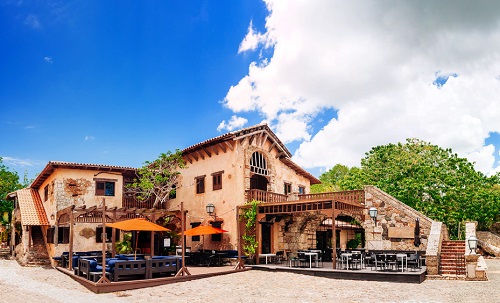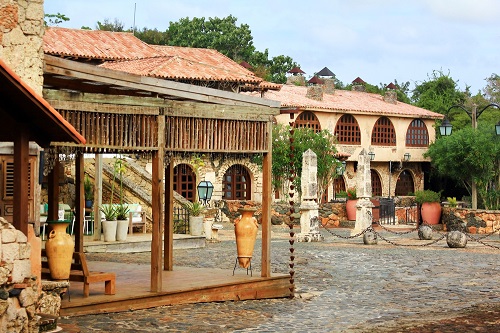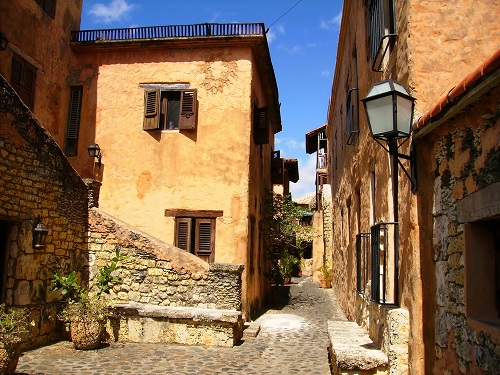If you are fully resident in the Dominican Republic, you will have to go to Santo Domingo in person for a medical exam and to collect your residency card. Your residency will have to be renewed annually for the next five years, again by visiting Santo Domingo. Therefore, you may want to consider proximity to the capital when choosing where to settle.
Renting property
Most leases in the Dominican Republic are negotiable. However, if you have inadvertently rented a short-term holiday let, the landlord may be resistant to your wanting to stay longer than a few months.
You will usually be expected to pay for the drawing up of the lease agreement. This will be in Spanish, so you need to make sure you understand all of it.
You will normally pay three months’ deposit up front, and if you find your home through a third party, such as an estate agent, then they will receive one month of your deposit as a fee, so you will not be getting that back.
Many apartments are in complexes, with their own security and shared amenities, such as pools. These have management charges on top of the usual rent, which typically range from RD$5,440 to $27,200 (US$100 to US$500).
You will probably be responsible for repairs to the property. If you find a place that you think needs work, don’t take on more than you can handle.
Finding properties to rent
Any Google search will turn up properties by the dozen. However, specify ‘long-term’ in your search terms, or else you will be deluged with seasonal holiday lets.
The most popular method of finding rental properties is word of mouth. Many long-term renters first book to stay in hotels or holiday apartments, while they search for somewhere more permanent.
Typical rental prices in major expat destinations
If you are working, then you will probably want to live in Santo Domingo or Punta Cana, which have the best infrastructures and connections. These are also the two most expensive destinations. A one-bedroom apartment in central Santo Domingo costs, on average, around RD$24,100 (US$443) per month. Further out, the price drops to an average of RD$12,560 (US$231) per month, while a three-bedroom apartment averages RD$21,900 (US$403). Punta Cana manages to be more expensive than the capital, with a central one-bedroom apartment costing around RD$30,100 (US$565).
Inexpensive living in coastal towns is also popular with expats. In Puerto Plata, a central one-bedroom apartment costs, on average, RD$10,000 (US$185) per month, while a three-bedroom apartment costs around RD$20,200 (US$371). Prices drop by US$50 or more as you head away from the centre.
Note that the further you are from a population centre, the more you will need good Spanish.

Specific advice for expats
Remember that everything is negotiable in advance. Always be respectful, but always be prepared to walk away. Always be suspicious of anyone who seems to be rushing you into an agreement.
The lease must be in Spanish, but you are entitled to a copy in your own language. You may want to translate the Spanish copy yourself and compare it to the translation supplied. The best leases are simple, one-page affairs. The longer the lease, the higher the chances of someone trying their luck.
Some landlords may require you to name a Dominican citizen or resident as a rent guarantor.
Take responsibility for your own utilities, as landlords may let them lapse without giving you warning. See if you can deduct the necessary costs from your rent.
Check that there are no outstanding bills from the previous tenant, as otherwise you may find yourself liable for paying them. If it turns out there are bills, you can offer to pay them on the condition that the amount is deducted from your rent.
Water and electricity can be unreliable. Make sure you know how often the electricity goes out. If it is often, make sure that the property has a backup generator, or invest in your own. Some areas will shut power off on a regular basis to conserve supplies; try to learn the schedule. Many backup systems cannot run full air conditioning, but can manage fans. Consider whether you can bear to live in your property with just fans to keep you cool.
If the property cooks on gas, find out whether this comes from a central system or from individual propane tanks that will need refilling. If the former, check whether this is included in the rent or means a separate gas bill. If the latter, check the costs and the procedure.
The qualities of internet connections vary widely, especially in non-urban areas. Bear this in mind if you want to stream high quality videos.
Get a receipt for everything. Not having a receipt is a common excuse for someone trying to rip you off.
Buying property
The Dominican Republic welcomes foreign buyers with open arms. Retirees with a minimum stable income of just $1,500 a month are guaranteed residence. Foreign buyers have a 50% exemption from property tax, and exemption from taxes on forms of income, such as pensions, dividends or interests, whether they come from home or abroad.
Typical house buying procedure
The first thing to do if you find a property is to research it at the local titles office. Verify that the property officially exists, i.e. that it has been subject to an official government demarcation survey (deslinde). Check that the people selling it actually have the right to do so. See whether there is a mortgage or other lien already on the property – if there is, then it will be recorded with the title deed. Also, check there are no squatter’s rights on the property. Next, go to the tax office (Impuestos Internos) to make sure that all taxes relating to the property have been paid.
You can conduct both checks yourself, but will probably want to hire a solicitor instead. They should also check there are no unpaid bills.
Once you are satisfied, make your offer verbally to the seller, taking into account any unpaid taxes etc. Written offers are rare and carry no weight. You may be asked to establish your identity, but your passport is enough to do this.
The seller’s solicitor (normally paid for by the buyer) then draws up a Promise of Sale (promesa de venta). This is legally binding and must be signed by both parties (including spouses) in front of a notary. A 10% deposit is usually paid into an escrow account at this stage, to reserve the property for you and to confirm it is off the market for other buyers.
The promesa de venta must include: full names and particulars of all parties; a full legal description of the property; purchase price and payment terms; a default clause; the date of the property being handed over; any due diligence still to be done; remedies in the event of misrepresentation; and an obligation for the seller to sign the Deed of Sale upon receipt of final payment.
All funds from the buyer need to be in escrow three days before the formal closing. The Deed of Sale (contracto de venta) is then signed by both parties in front of a notary, which conveys the property from the buyer to the seller. The buyer has immediate right to take possession, though it may be a month before the sale is formally recorded with the Register of Titles by your solicitor.

If the property is worth more than RD$6.5 million (around US$135,000), the new owner must pay an annual property tax of 1% of its value. There is also a one-time property transfer tax of 3% of the value. With the incentives offered to foreign buyers, you may be exempt from these, but this must still be established formally. The contracto de venta must therefore be taken to the nearest taxation office, and a request must be made for the property to be appraised. This must be done before the title deed can be filed.
No transfer tax is paid if the property is held in a Dominican corporate name. The corporation holds only one asset – the property – and this is transferred. For around US$1200, your solicitor can establish a corporation that will let you avoid this tax when you decide to sell.
In all, you will pay around 5% of the total sale price in taxes, closing costs and legal fees.
Finding properties to buy
Using Google and local knowledge are good bets for finding property. Bearing in mind that all the legal parts of the process will be in Spanish, you may prefer to go through an estate agent, who can take care of the formalities on your behalf.
Almost anyone can present themselves as an estate agent, so make sure you use a proper, bona fide organisation if you choose this route. It may be worth checking that they have an office, a website and more than one member of staff. Professional agencies will have staff who speak Spanish and English. Choose a local agency with local staff; they will feel more involved in your purchase in their area.
Specific advice for expats
Foreigners enjoy the same rights as citizens. For statistical purposes, the Title Registry Office must keep a record of all purchases made by foreigners.
Before purchasing a property, check which electrical circuit it is on: A, B, C, or D. Circuit A has electricity 24 hours a day, but the others have less, with circuit D only having around 8 hours a day.
Check whether water comes from a cistern, a well or the mains and whether it goes off.
Not all areas have an organised rubbish collection. You may have to find a way to dispose of your rubbish yourself.
Mortgages for foreign nationals
Most property transactions in the Dominican Republic are done in cash. However, the government is encouraging foreign investment with tax incentives, and the local mortgage market has recently boomed. Typically, local banks will loan 70% of the appraised value of the property, with interest rates typically ranging from 7% to 9%.
Once a mortgage has been agreed, you will need to sign it in person. However, you may be able to nominate someone with power of attorney to sign it in your name, so long as you discuss this with your bank.

